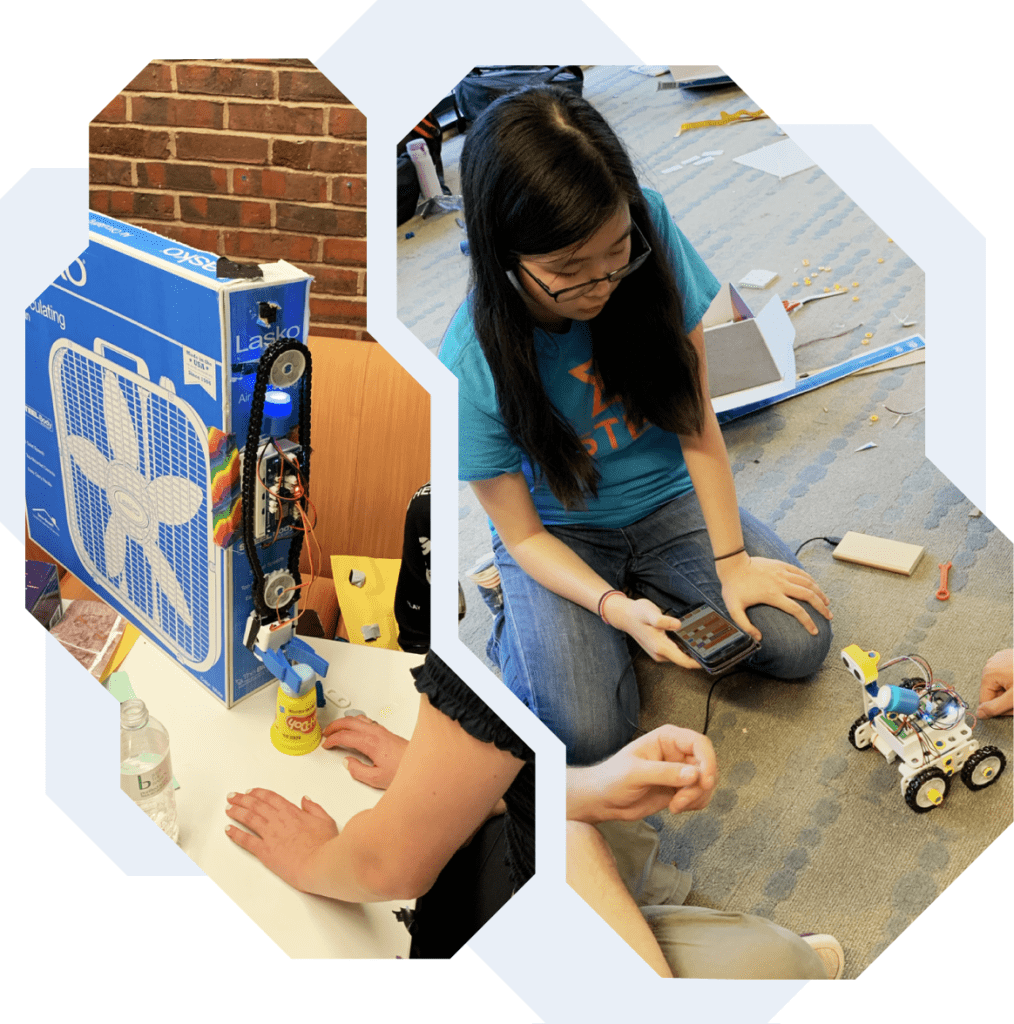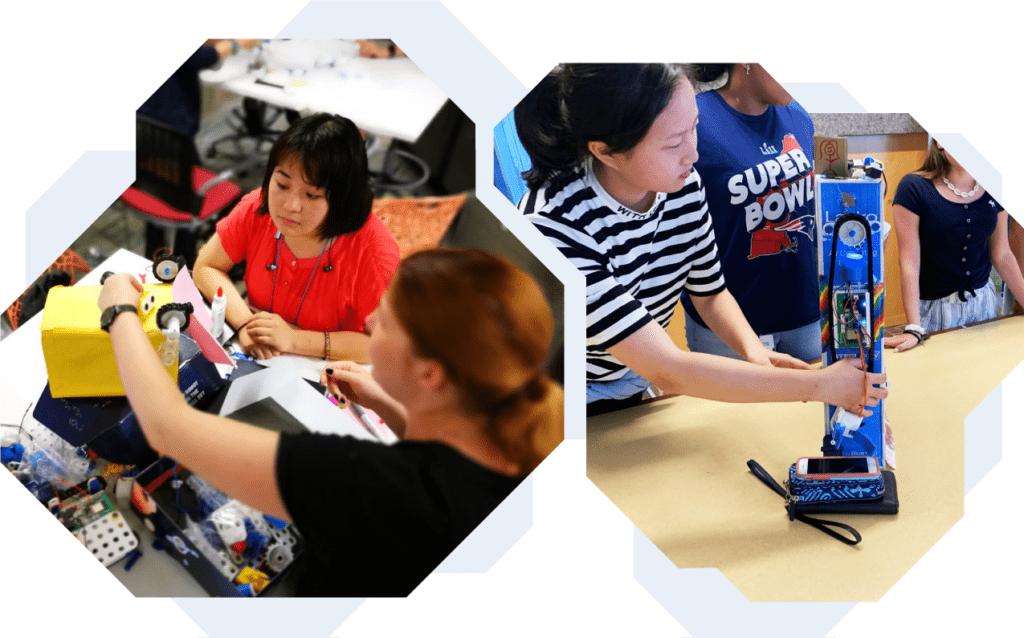
What:
Robotic classes for high school students (13-18 year-olds)

When:
july –
august 2019

Project coordinator:
Aleksandra
Orkan-Łęcka

Who:
MIT i Harvard University, Boston, Massachusetts, USA

Skriware tools used:
Skribots (parts found in construction kits), Skriware 2 3D printer

Almost 50 future engineers from all over the world gathered on the most prestigious technical university in the world to play and learn with Skribots and our 3D printers. For Skriware’s Aleksandra Orkan-Łęcka, who ran the classes, these were truly hectic moments. It turned out the challenges of FutureHach Global Innovators Bootcamp extended beyond the originally planned tasks.
Robotics workshops
The workshops were split into turns, two and a half-day each. All groups would begin with a course on electronics, 3D printing, robotics, and coding. They were also taught the basics of design thinking, an approach to project work that helps solve problems in a creative way. The theory was just an introduction to actual work with Skriware 2 3D printer and the educational robots. Skribots’ modules and programming were key to assignments that mimicked real-life problems on a miniature scale. Using constructions built with Skribot parts, students were solving tasks that simulated maneuvering in a narrow warehouse, erecting a multi-story tower or parking an autonomous car in a specified garage spot.
Design thinking, i.e creativity in practice
Each project involved analyzing the problem and assessing and modifying available tools, followed by testing and iterating on the chosen solution. In addition, participants had to deal with surprising problems such as an insufficient amount of office supplies and the heatwave. The workshops were held in summer and yet the AC broke with doors in the building closing automatically. The problem was remedied by a… ten-year-old, who used a Skribot motor to build a fan spinning in the range of the door’s motion sensor. Then it became a matter of writing a looped code that kept the fan working, and the fresh air was finally let in.

Situation like this is just one example of the practical application of design thinking. Aleksandra Orkan-Łęcka, who represented Skriware at the robotics workshop at MIT, says:
Solving „real-life” problems with Skribots engages students effectively. Our MIT groups varied a lot in terms of coding skills – for some kids, programming with blocks was a novelty, while others wanted to use C++ already – and yet students were able to cooperate. They were so hooked they would stay with us until 2 AM to work on their creations. The additional problems didn’t discourage them – quite the contrary. All groups finished their tasks!
For us, FutureHack workshops at MIT were the very first test of Skribots and Skriware 3D printers on the American soil. We couldn’t hope for better proof that our concept for modern education meets its goals.


